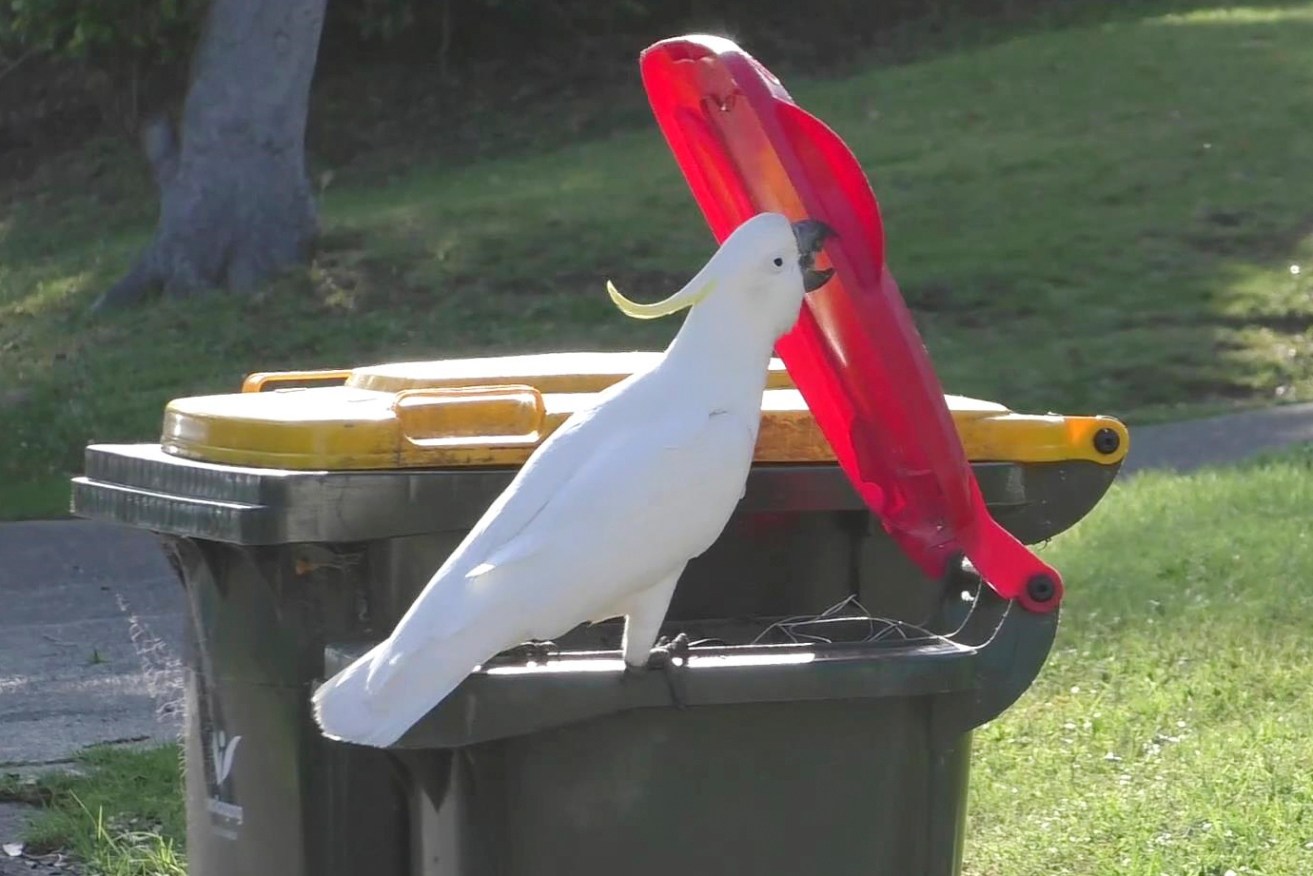Who’s a clever boy? Cockatoos moving in on bin chickens’ territory
Cheeky Australian cockatoos are teaching each other how to lift wheelie bin lids to snack on garbage.

In this 2019 photo provided by researcher Barbara Klump, a sulphur-crested cockatoo opens the lid of a trash can in Sydney, Australia. At the beginning of 2018, researchers received reports from a survey of residents that birds in three Sydney suburbs had mastered the novel foraging technique. By the end of 2019, birds were lifting bins in 44 suburbs. (Barbara Klump/Max Planck Institute of Animal Behavior)
For the first time, a team of international scientists have proven that the iconic Australian species’ behaviour is learnt.
It all started with an amusing video sent to the researchers a few years ago.
A sulphur-crested cockatoo was captured opening a closed garbage bin, using its beak and foot to lift the heavy lid and shuffle along the side to flip it over, accessing a smorgasbord of leftover food.
“Like many Australian birds, sulphur-crested cockatoos are loud and aggro, and often act like a pack of galahs,” the Australian Museum Research Institute’s Dr Richard Major said.
“But they are also incredibly smart, persistent and have adapted brilliantly to living with humans.”
Demonstrating the animals were not foraging because of genetics was a challenge, said lead author of the research paper, Dr Barbara Klump of the Max Planck Institute of Animal Behaviour.
“Children are masters of social learning. From an early age, they copy skills from other children and adults,” she said.
“However, compared to humans, there are few known examples of animals learning from each other.”
Researchers launched a survey to see how widespread the behaviour was, and by the end of 2019, had reports from residents in 44 areas across Australia.
Further analysis showed the behaviour spread to neighbouring districts more quickly than districts further away.
“We observed that the birds do not open the garbage bins in the same way, but rather used different opening techniques in different suburbs,” Dr Klump said.
“These results show the animals really learned the behaviour from other cockatoos in their vicinity.”
The survey will be conducted again in spring, with the researcher hoping to learn more about “regional subcultures” among the birds.












